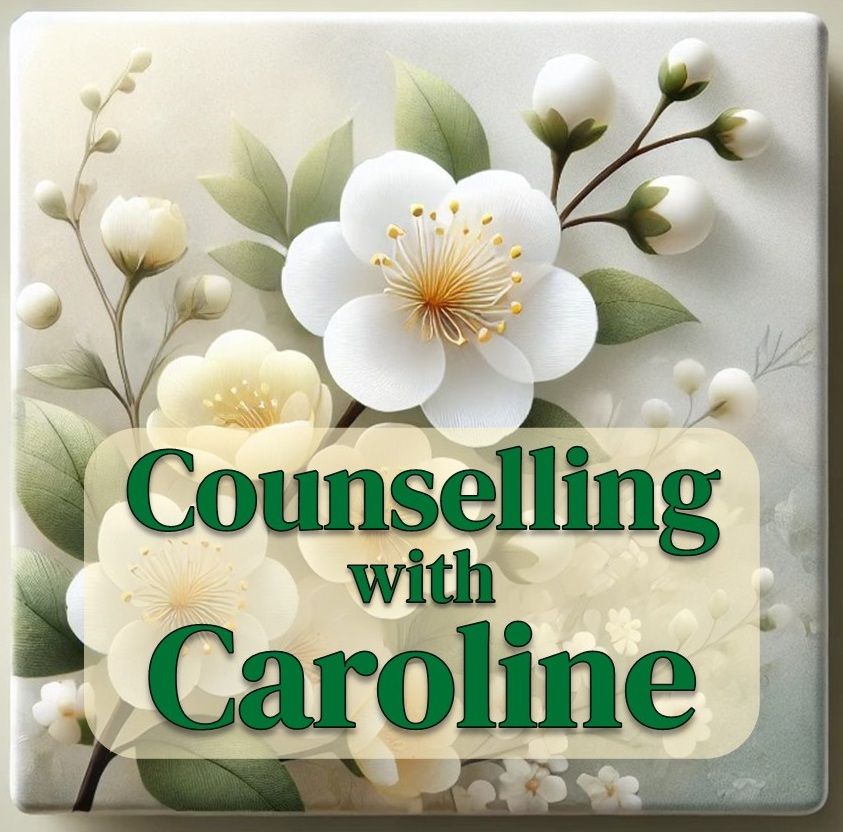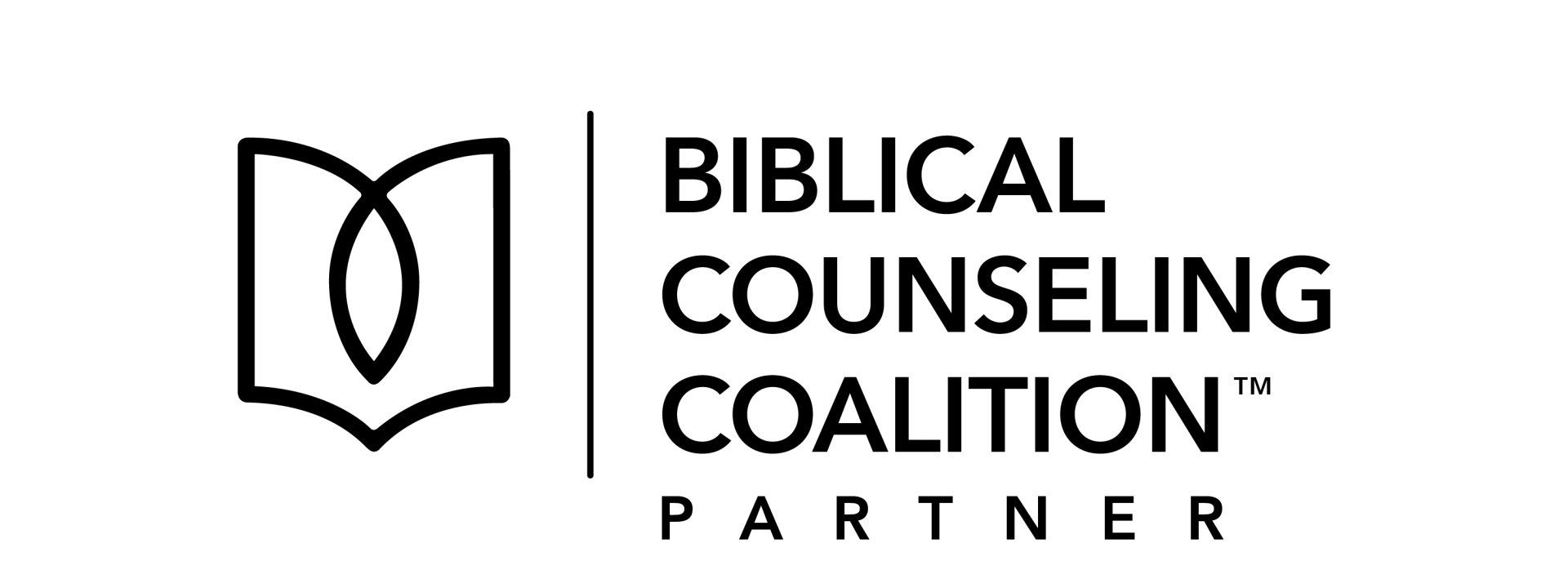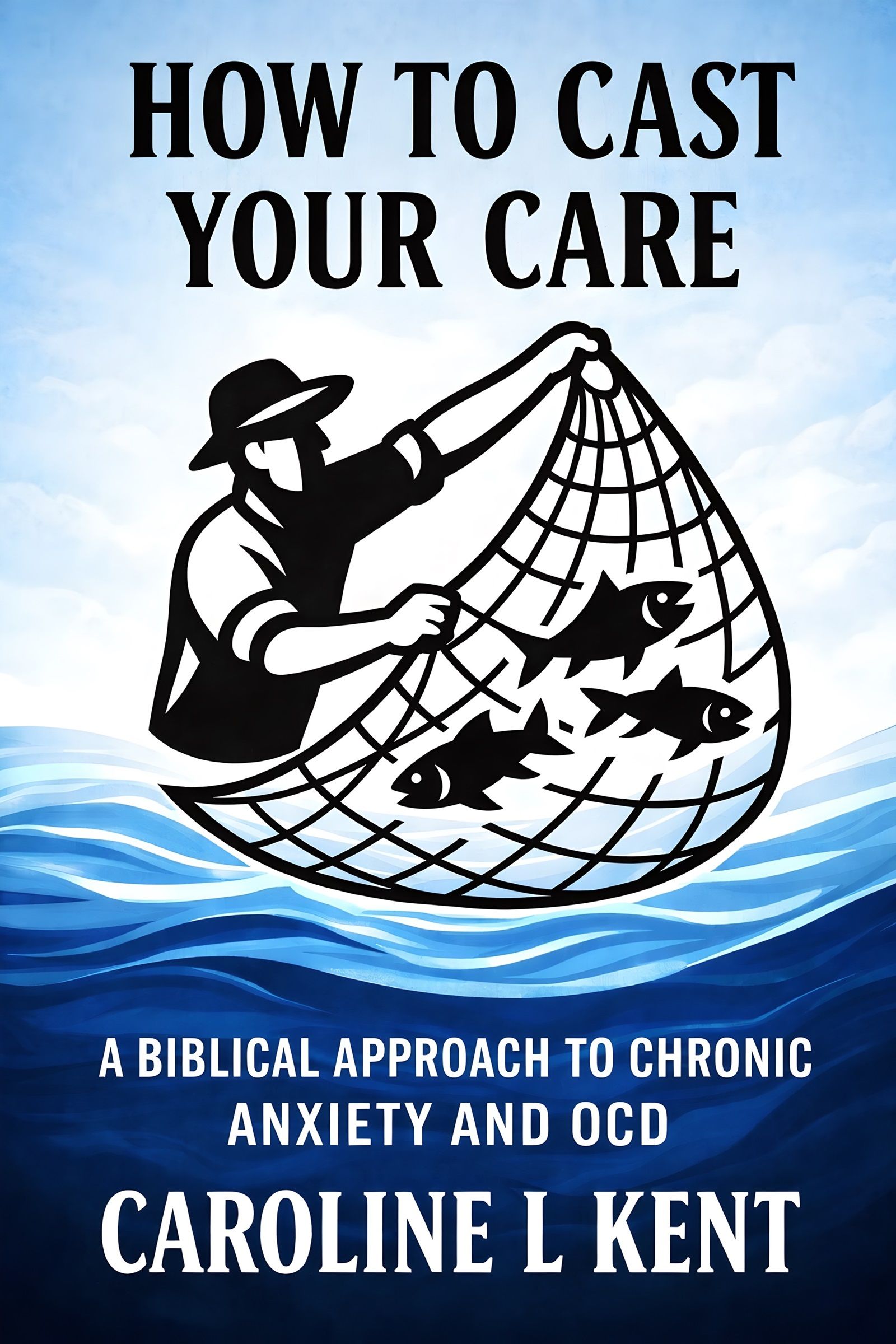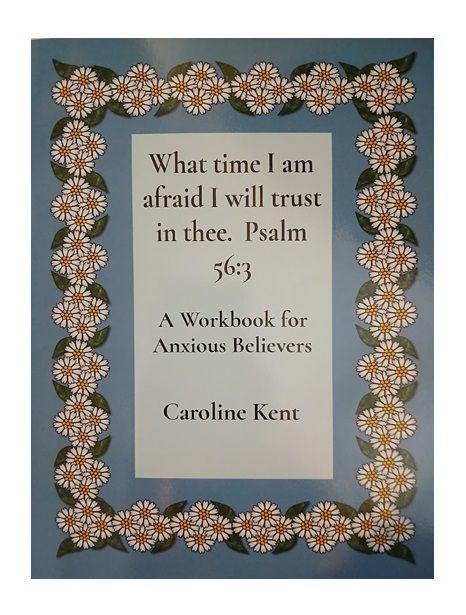About Caroline
My name is Caroline Kent, and I’m so glad you’re here. Since 2007, I’ve been walking alongside people in their deepest struggles, offering counsel grounded not in human wisdom, but in the living and sufficient Word of God. Whether you’re facing anxiety, intrusive thoughts, grief, trauma, or spiritual confusion, I offer a safe, compassionate space where we look to Christ and Scripture for true hope and help.
“Now our Lord Jesus Christ himself, and God, even our Father, which hath loved us… comfort your hearts, and stablish you in every good word and work.”
— 2 Thessalonians 2:16–17 (KJV)
"Ho, every one that thirsteth, come ye to the waters, and he that hath no money; come ye, buy, and eat; yea, come, buy wine and milk without money and without price.” Isaiah 55:1
What is Biblical Counselling?
Biblical Counselling looks to the wisdom and teaching of the Triune God, as revealed in the Holy Scriptures, to understand and address the complexities of the human heart. It is founded on the belief that the One who made us and sustains us knows best how to heal us.
Where secular counselling may look within the self for strength or insight, Biblical Counselling looks upward—to the resources of our infinite God, rather than the depleted willpower of hurting and broken people.
It is not a cold listing of sins, but a process of opening our lives before God’s Word to see where His truth brings light, freedom, and comfort. Many times, we discover how we’ve drifted from His ways, lived in independence, or absorbed the world’s thinking unawares. Yet always, the goal is restoration in Christ and renewed relationship with our Heavenly Father.
“Blessed be the God and Father of our Lord Jesus Christ… who hath begotten us again unto a lively hope by the resurrection of Jesus Christ from the dead.”
— 1 Peter 1:3 (KJV)
My Professional Experience
I have been counselling professionally since 2008 and have completed over 3000 clinical hours, working with over 200 people from all walks of life.
Qualifications:
- Level 4 Diploma in Christian Counselling (ACC & OCN, 2010)
- Level 3 & 2 Christian Counselling (ACC & CPCAB)
- BA (Hons) Theology and Religious Studies (Bristol University) including Medical & Behavioural Ethics, qualified as a Lay Reader in the Church of England, now a Reformed Baptist
- PGCE (Bishop Grosseteste, Lincoln) Worked five years as a primary school teacher and have tutored young people and adults one-to-one for over 20 years.
- Extensive CPD in Cognitive Behavioural Therapy (CBT), Acceptance and Commitment Therapy (ACT), and Mindfulness-Based Cognitive Therapy (MBCT)
- In addition to my academic training, I have undertaken extensive personal and professional study in Biblical Counselling, the writings of the Puritans, and classical pastoral theology, drawing especially from the rich heritage of Reformed soul care as articulated in the 1689 London Baptist Confession and the works of men such as Richard Baxter, Thomas Brooks, and John Flavel.
- Fully supervised and insured; enhanced DBS checked, committed to safeguarding and confidentiality
My practice draws not only on formal training and study but also on many years of practical ministry in a variety of church settings, personal suffering, and walking with the Lord through chronic illness. I have been married to my husband Jeremy since 1995, and we worship together in a Bentley Reformed Baptist Church, holding to the 1689 London Baptist Confession of Faith.
Biblical Counselling: Timeless Wisdom, Clinically Aligned
Modern secular therapies such as CBT, ACT, and MBCT are built upon relatively recent discoveries in behavioural science and cognitive restructuring. However, the core therapeutic principles of these approaches have long existed in the Bible, expressed with greater depth, purpose, and eternal insight.
Biblical Counselling Is Also Evidence-Based
Though I no longer practice CBT, ACT, or MBCT in their secular forms, I understand them well and affirm that the best elements of these approaches find their fullest and truest expression in the Bible. Long before these frameworks were developed, Scripture taught the essential principles they now describe.
For example, the concept of cognitive restructuring—at the heart of CBT—is a secular reflection of the biblical call to “be transformed by the renewing of your mind” (Romans 12:2). The value of acceptance in ACT echoes the spiritual surrender and trust in God's providence modelled in Psalms such as Psalm 131. The present-moment awareness taught in mindfulness therapies is captured far more profoundly in verses such as “Be still, and know that I am God” (Psalm 46:10) and “Take no thought for the morrow” (Matthew 6:34). These principles are not modern inventions but timeless truths, rooted in divine wisdom.
What secular therapies offer in part, biblical counselling offers in fullness. Biblical Counselling does not merely aim to manage symptoms or reduce distress. It seeks to address the deepest causes of human suffering—our alienation from God, the effects of sin (ours and others’), and the spiritual confusion that results from living in a fallen world.
In this approach, we do not settle for emotional regulation alone; we seek heart transformation, spiritual renewal, and a growing conformity to Jesus Christ. Where CBT may help someone change unhelpful thoughts, biblical counselling helps identify and replace false beliefs with eternal truth. Where ACT encourages value-based action, Scripture directs us to live lives governed by God’s revealed will and shaped by His promises. Where MBCT teaches detachment from thoughts, biblical mindfulness invites us to focus our minds on the living God, His works, and His Word.
This makes biblical counselling not only clinically aligned with many of the goals of psychotherapy, but surpassingly superior, because it addresses the whole person—mind, body, and soul—and leads not merely to coping, but to godly resilience, spiritual clarity, and lasting hope.
I am confident that my practice meets or exceeds the standards expected of those in the field of psychotherapy. I bring not only academic and clinical rigour, but also a deep reverence for God’s truth, a pastoral heart, and a sincere commitment to your growth in grace. My goal is not simply to help you feel better, but to walk with you into a deeper, more trusting relationship with the Lord Jesus Christ—where true healing is found.
Why I No Longer Belong to the BACP or ACC
In the past, I was registered with the BACP and the ACC, organisations which, at the time, allowed for a level of freedom for Christian practice. However, both now require affirmations that conflict with God’s Word—for example:
BACP (2018): “Practitioners should not allow prejudice about a client’s… sexuality… to adversely affect the way they relate to the client.” This is widely interpreted to require affirmation of same-sex relationships, regardless of biblical teaching.
HCPC (2021): “You must not allow your views to affect your relationship with service users.”
This prevents biblical disagreement over identity, lifestyle, or sin.
ACC (2014): “It is unethical to offer or practice reparative or conversion therapy.” This forbids supporting clients who seek biblical sanctification from same-sex attraction. (Never-the-less, I do not engage in 'conversion therapy' in any form. I help people to refer to scripture and the LORD as their source of guidance and help, whatever their specific aims in therapy.)
Because I cannot compromise the truth of Scripture, I voluntarily withdrew from these organisations. I now practise under the oversight of the Biblical Counseling Coalition (BCC) and the International Association of Biblical Counselors (IABC), which uphold the sufficiency of Scripture and the authority of Christ in all soul care.
My Approach: Theology in Practice
I currently offer care in the following four key approaches, all underpinned by Scripture:
1. Biblical
“That which was from the beginning… the Word of life.” — 1 John 1:1
God’s wisdom in Scripture surpasses all human understanding. We begin with the Word and stay with the Word.
2. Mindful (Biblically Defined)
“Be ye mindful always of his covenant…” — 1 Chronicles 16:15
True mindfulness means remembering God’s promises and living in conscious dependence on Him—not detachment or emptying the mind.
3. Acceptance and Commitment (Through Truth)
“Ye shall know the truth, and the truth shall make you free.” — John 8:32
Biblical acceptance means submitting to God’s sovereignty and letting go of self-rule. Commitment means walking forward in obedience and trust.
4. Renewing the Mind
“Be ye transformed by the renewing of your mind…” — Romans 12:2
The Christian life is a process of sanctification, with the Holy Spirit using truth to reshape how we think, feel, and live.
Ethics and Accountability
My practice is governed by a biblical code of ethics rooted in the 1689 London Baptist Confession. I adhere to these nine commitments:
- The Bible is my final authority (2 Tim. 3:16–17)
- Christ is central to all healing and transformation (2 Cor. 5:17)
- I treat every person with dignity and compassion (Gen. 1:27)
- I protect client confidentiality (Prov. 11:13), with legal exceptions
- I offer a holistic biblical view of suffering and sin
- I work under ongoing supervision and seek excellence
- I uphold non-negotiable truths like the sanctity of life and marriage
- I encourage growth in sanctification and faithfulness
- I rely on God’s grace daily in this work (James 1:5)
My approach to care is intentionally pastoral in nature. I see counselling as a form of applied discipleship, offering not just therapeutic support, but biblically faithful care that is compassionate, relational, and focused on the glory of God and the good of the counsellee. This aligns with the BCC’s emphasis on "progressive sanctification as the goal of counselling", and on counselling that is “anchored in the sufficiency of Scripture for all matters of life and godliness”.
Like the BCC, I believe that the Scriptures are wholly sufficient for the care of souls, and that lasting transformation comes not through psychological technique alone, but through the redemptive work of Jesus Christ, ministered through the Word and by the Holy Spirit in the context of loving relationship and truth. I also affirm the BCC’s commitment to ongoing humility, theological integrity, and accountability, all of which I seek to uphold through supervision, prayerful dependence on the Lord, and submission to Scripture in all matters of ethics and practice.
Thus, my study and application of Puritan pastoral theology is not an intellectual exercise but a vital expression of biblical soul care that is entirely consistent with the BCC’s Confessional Statement and Code of Ethics—placing Christ, not technique, at the centre of every session, and Scripture, not speculation, at the root of all wisdom offered.
Specialities
I help those facing:
- Anxiety, fear, or panic
- Intrusive thoughts or OCD
- Religious scrupulosity
- Trauma or PTSD / CPTSD
- Eating Disorders / Body Dysmorphia
- Guilt and shame
- Grief and loss
- Chronic Illness / Pain / Fatigue
- Abuse recovery (spiritual, physical, emotional, psychological)
- Spiritual confusion or backsliding
- Lack of Assurance
- Emotional Literacy (especially for children and young people)
- Neurotypical support (especially autism)
Parity?
While I am not an HCPC psychotherapist under statutory regulation, my academic qualifications, in-depth training, and counselling experience meet—and in many respects exceed—the professional standards typically associated with registered psychotherapists. My approach is not inferior to mainstream psychological models, but is rooted in a far older, wiser, and divinely authored source: the Word of God.
The tools found in Cognitive Behavioural Therapy (CBT), Acceptance and Commitment Therapy (ACT), Mindfulness-Based Cognitive Therapy (MBCT), and other evidence-based approaches often echo timeless biblical principles. Long before these frameworks were named, the Bible addressed the renewing of the mind, the call to live in the present under God's sovereignty, the value of commitment to truth, and the need to bring every thought captive to Christ.
“The law of the Lord is perfect, converting the soul: the testimony of the Lord is sure, making wise the simple.”
— Psalm 19:7 (KJV)
As a biblical counsellor, I do not rely on human theory alone, but on the eternal, Spirit-breathed truths of Scripture. My counselling practice is not only professionally competent but also deeply anchored in God’s design for human flourishing. I counsel under the authority of Christ, seeking your good and God's glory with every session.
“Ho, every one that thirsteth, come ye to the waters, and he that hath no money…”
— Isaiah 55:1 (KJV)
If you’re weary, confused, or longing for peace—come. Here, you will find grace that heals, truth that sets free, and mercy that never runs dry.
A footnote for those who have to engage with the authorities.
What Are Christians Entitled to if Referred for Psychotherapy?
1. Freedom of Religion and Belief (Human Rights Act 1998, Article 9)
Even when therapy is court-ordered or recommended, Article 9 of the Human Rights Act 1998 still applies. This guarantees:
“Everyone has the right to freedom of thought, conscience and religion.”
This includes:
- Freedom to choose a therapeutic approach consistent with Christian faith.
- Protection from coercion into therapy that contradicts sincerely held beliefs (e.g. gender ideology, secular spirituality, moral relativism).
- The right to request a Christian or biblically aligned therapist if available.
The court can recommend therapy but cannot force participation in a model that violates a person’s religious convictions.
2. Protection Under the Equality Act 2010
Under the Equality Act 2010, "religion or belief" is a protected characteristic. Public bodies (including courts, CAFCASS, NHS services, and social care professionals) have a legal duty to:
- Make reasonable accommodations for religious beliefs when recommending or commissioning therapy.
- Avoid indirect discrimination, such as referring someone only to secular services when faith-based alternatives exist.
- Recognise the lawful practice of Biblical Counselling, provided it does not conflict with safeguarding law.
So if a Christian expresses discomfort with mainstream models (e.g. person-centred, gender-affirmative, mindfulness-based), they have a legal right to request a therapist or programme in line with Scripture.
3. Right to Informed Consent and Therapeutic Autonomy
Even in a legal setting, therapy requires informed consent. This is a principle in:
- The Mental Capacity Act 2005
- NHS standards and NICE guidelines
- The British Psychological Society and BACP ethical codes
A Christian is entitled to:
- Understand the model of therapy offered
- Decline aspects that violate conscience (e.g. affirming sin, denying the authority of Scripture)
- Request an alternative provider or a biblical framework where possible
Courts may require participation in therapy as a condition of child contact or rehabilitation, but they cannot specify that this must exclude faith-based input—unless there is a compelling legal reason (e.g. safeguarding concerns).
4. Use of Accredited Biblical Counselling
Although Biblical Counselling is not regulated by statutory bodies (like HCPC or BACP), it is still:
- Lawful as a private, faith-based service
- Recognised under freedom of religion provisions
- Increasingly supported by churches and Christian organisations as a meaningful alternative to secular psychotherapy
A Christian referred to therapy by the court can reasonably:
- Request to see a Biblical Counsellor with equivalent qualifications and safeguarding standards
- Present this request via a legal representative or directly to the court or CAFCASS officer
- Offer evidence of the counsellor’s training, supervision, insurance, and ethical framework
Where possible, judges may honour these requests—especially if presented respectfully and supported by evidence of ethical and therapeutic competence.
Christians seeking counselling in line with their beliefs must not be discriminated against—directly or indirectly—for requesting:
- Prayer or Scripture in sessions.
- A counsellor who affirms biblical morality.
- Support for pursuing sexual chastity, gender alignment with biological sex, or other biblically informed goals.
Likewise, a counsellor offering explicitly Christian or Biblical therapy is entitled to do so, provided this is made clear and consent is freely given.





